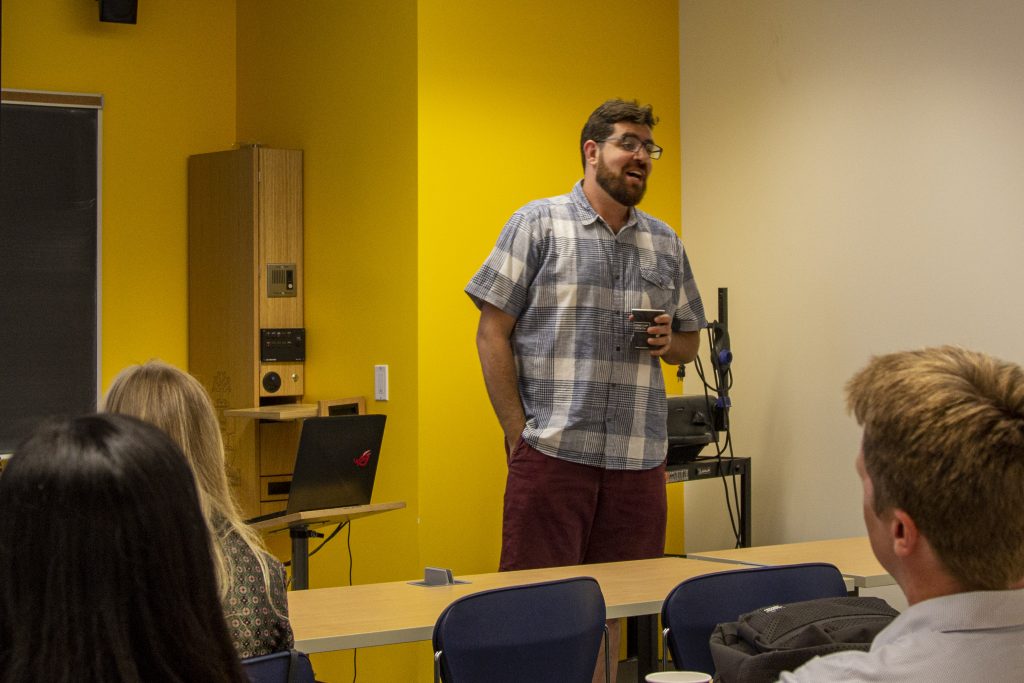
Professor Steven Farber warmly welcomed the crowd and introduced the speakers.
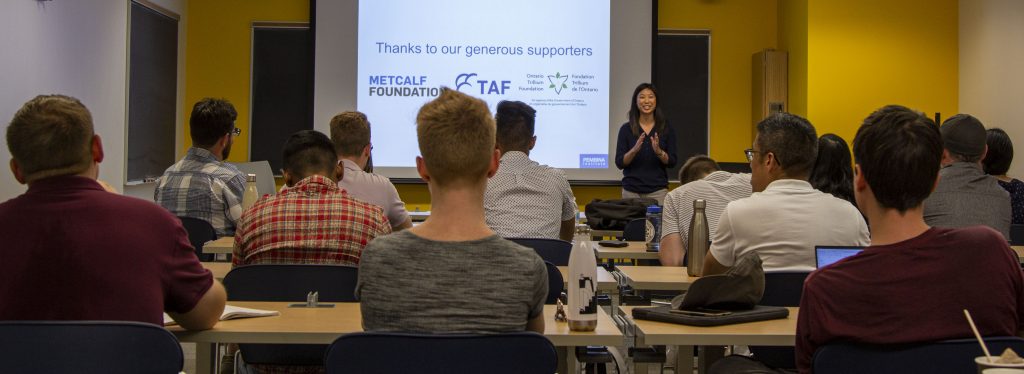
Janelle Lee first presented “Delivering ‘last-mile’ solutions: A feasibility analysis of microhubs and cyclelogistics in the GTHA.” Lee focused on two delivery models that are increasingly being integrated into goods movement activity in North America to increase delivery efficiency in urban centres: microhubs and cyclelogistics.
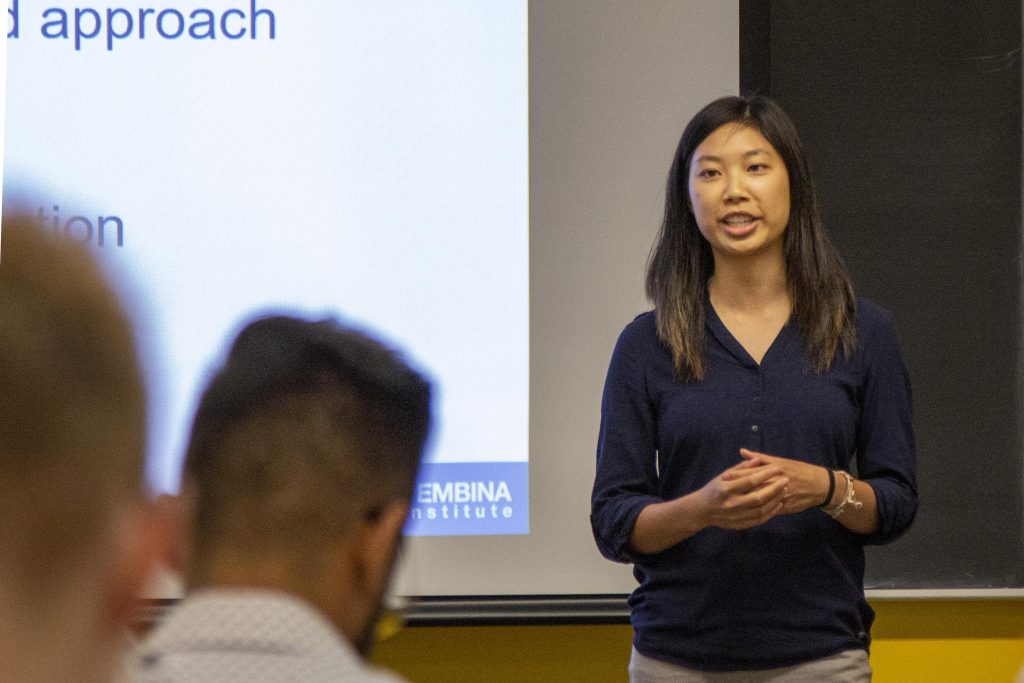
The Pembina Institute’s latest report, “Delivering Last-Mile Solutions”, written by Janelle Lee, Carolyn Kim and Lindsay Wiginton, investigated the feasibility of these delivery models in the GTHA and found that microhubs and cyclelogistics have the potential to reduce delivery costs for businesses and mitigate freight emissions.
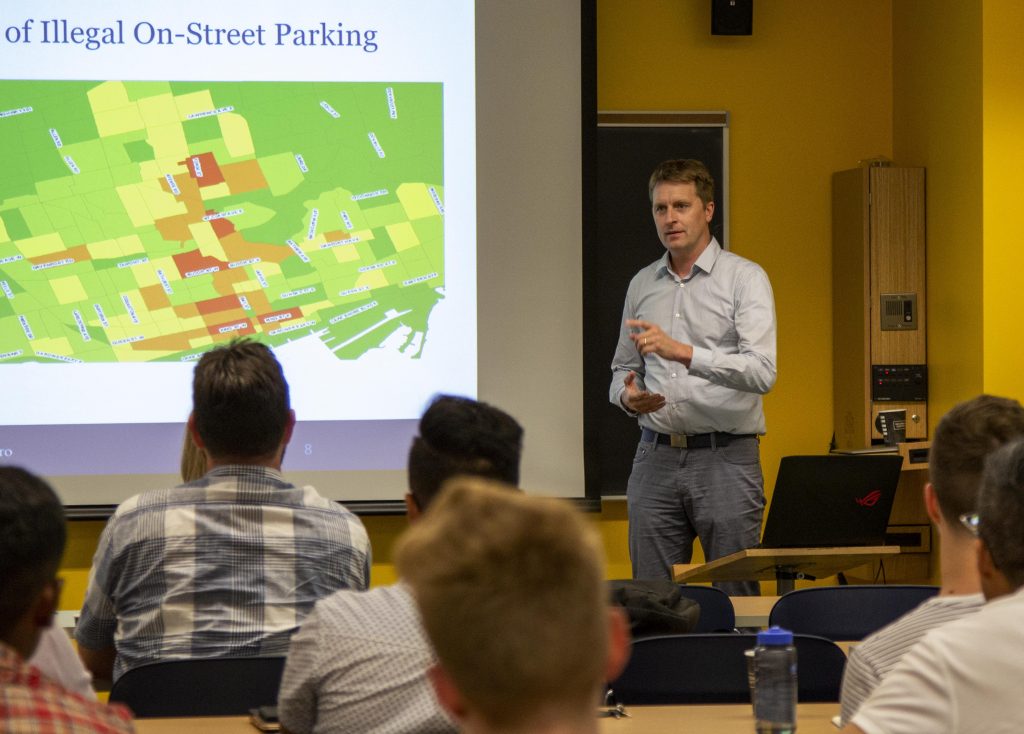
Professor Matthew Roorda delivered his talk “Case studies in ‘last-mile’ logistics in the Toronto area.” He described several new methods for last-mile delivery and their application in Toronto, and shared interesting bits of goods movement trivia which were tweeted by attendee Carolyn Kim, a co-author of the Pembina report “Delivering Last-Mile Solutions”:
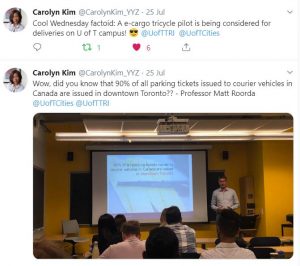
Professor Roorda, Chair of the recently launched Smart Freight Centre, a Centre of Excellence in goods movement, discussed the challenges of last-mile delivery in Toronto, a variety of potential solutions, and the latest on-going pilot studies before answering questions.
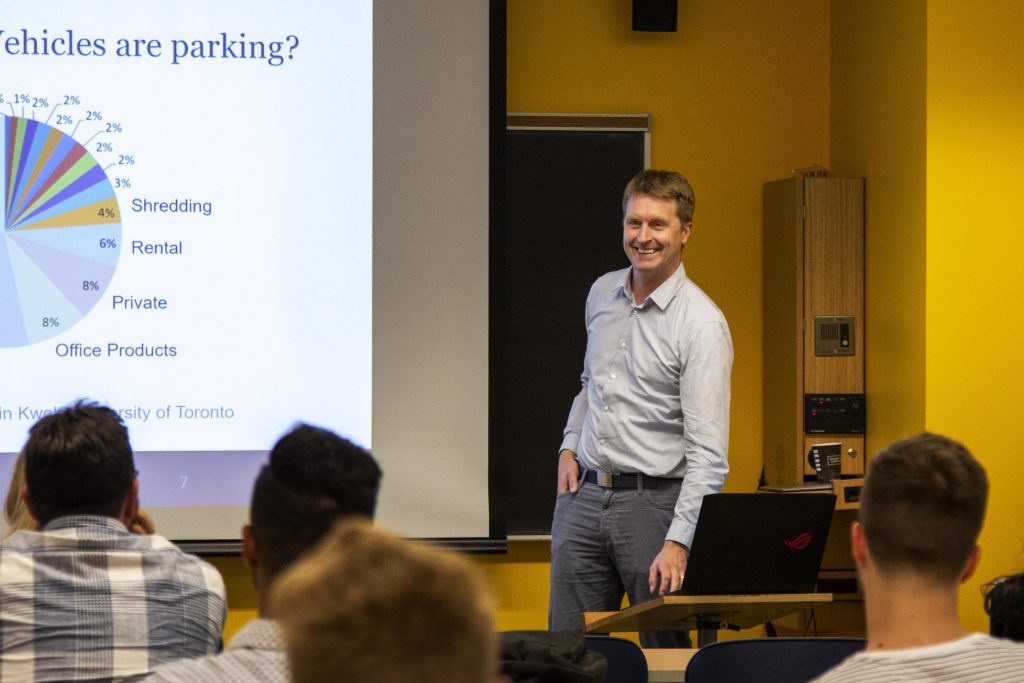
Upcoming seminars
Wednesday, August 7, 3-5 p.m., MY 440, Myhal Centre for Engineering Innovation and Entrepreneurship:
- Professor Shoshanna Saxe, “Rethinking the impacts of transport infrastructure – a holistic life cycle approach”
- William Denning, Walmer Consulting, “Economics Focus within the Sustainability Triad”
About Cities By Design: The Future of Urban Mobility
For the first time in history, the majority of people live in urban settings. Cities are the engines of economic growth, but are plagued with challenges relating to resource allocation, constrained government spending, ecosystem protection, creating migrant and youth opportunities, social inequities, labour market changes and infrastructure aging. Thrown into this arena, emerging technologies such as automated and connected vehicles, ride-hailing services, Mobility-as-a-Service platforms, and micro-transit are threatening rapid changes to our mobility systems. The academic and policy debates are rife with visions of new mobility utopias, where technology drives improvements in efficiency, CO2 emissions, and social inclusion. Also prominent are visions of mobility dystopias, where private vehicles control more of the public realm, mobility benefits are concentrated among the wealthy, and labour standards are eroded. Cities now face the massive challenge of evaluating the potential benefits, costs, and unintended consequences of integrating a heterogeneous mix of promising technologies with existing transportation infrastructure and mobility services.
In light of this uncertainty, it is imperative that we conduct evidence-based research to guide transportation policy to achieve the many positive promises of emerging technologies, while ameliorating the inherent risks in technology-induced disruption. The Future of Urban Mobility seminar series will provide the U of T community a space to engage on these topics and explore research opportunities with the Mobility Cluster at the School of Cities.
Presented in partnership with the School of Cities.

